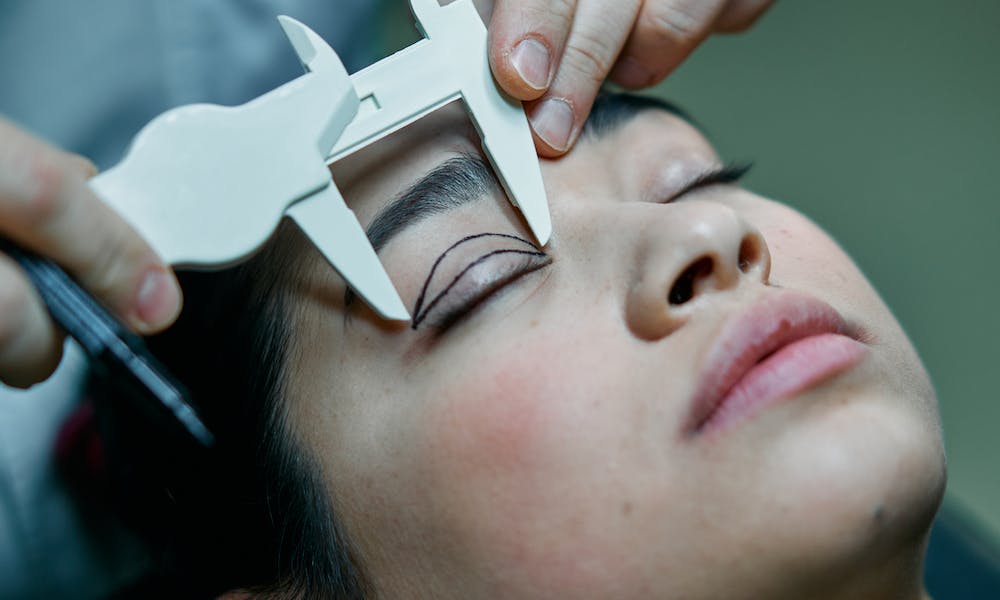Plastic surgery has changed a lot over the years.
What was once a field that focused solely on reconstruction now enables people to shape their bodies in a way that enables them to be confident in their own skin. Medical science has come a long way, but the evolution of plastic surgery has also happened thanks to changing attitudes in society and our ever evolving ideas of beauty.
The Origins of Reconstruction
Historical Roots: The history of plastic surgery spans several centuries. In fact, plastic surgery goes back to ancient times, beginning with rudimentary techniques that were used to repair injuries particularly in soldiers. Skin grafts were also introduced in Ancient India. The term “plastic” in plastic surgery comes from the Greek word ‘plastikos’, meaning to mold or give form. This is based on the original context which focused on restoring form and function rather than enhancing appearance.

Development Post World Wars: Many developments were made in plastic surgery during the two World Wars. Soldiers on the front lines experienced horrific injuries, often resulting in serious disfigurement and damage to limbs. To deal with the casualties of war, surgeons developed innovative new techniques to treat serious facial and limb injuries sustained in battle.These developments would go on to shape the future of reconstructive surgery.
Advancements in Techniques and Materials: Reconstructive plastic surgery has experienced major advancements thanks to the development of microsurgery, grafting techniques, and synthetic and biological materials. These have made a major difference in the treatment of burns, trauma, birth defects and cancer.
Moving Towards Enhancing Appearance
Rising Popularity of Cosmetic Procedures: In the latter half of the 20th century there was a shift towards using plastic surgery for aesthetic enhancements as reconstructive techniques became more refined. This shift was partially driven by an increased interest in personal appearance and a fear of aging thanks to mass media. Speaking of which…
Influence of Media and Celebrity Culture: Celebrity culture and the media added to the popularity of cosmetic surgery. As public figures openly underwent and discussed their cosmetic procedures, it helped in normalizing and popularizing these surgeries among the general population.
Technological Advancements and Innovation: Incredible technological advancements through the past several decades have massively benefitted the field of aesthetic plastic surgery. Laser surgery, endoscopic procedures, and non-invasive techniques mean that even more cosmetic procedures to be made. Now, procedures are even more accessible and much less risky.
The Modern Landscape of Plastic Surgery
Diverse Range of Procedures: Today, plastic surgery encompasses a wide range of procedures. You can have minimally invasive procedures like botox injections and dermal fillers. You can also have major surgeries such as rhinoplasty, breast augmentation, and liposuction. The field is constantly changing with new techniques and approaches being discovered every day.
Customization and Personalization: The great thing about modern plastic surgery is that it’s designed to enhance your natural beauty, which means that you’re more likely to get natural looking results. Plastic Surgeons and patients now work together closely to achieve outcomes that not only enhance appearance but also match the person’s specific wants and needs.
Ethical Considerations and Patient Safety: The field of plastic surgery has grown a lot over time, which also means that a lot of people are discussing the ethics of it. This includes considerations around psychological impacts, managing patient expectations, and ensuring that procedures are performed for the right reasons and in safe, accredited facilities by a Board Certified Surgeon by The American Board of Plastic Surgery, such as award-winning Seattle plastic surgeon Dr. Shahram Salemy.
Global Trends and Cultural Influences: The massive growth of plastic surgery has led to a blending of cultural aesthetic ideals. There’s a growing understanding and appreciation of individual beauty, and surgeons are increasingly catering to a multicultural client base with differing beauty needs.
The Interplay of Psychology and Plastic Surgery
Influence on Self-Esteem: Plastic surgery be massively beneficial for an individual’s self-esteem and body image. Reconstructive procedures often help restore normalcy and function which significantly boosts confidence. This is especially important in patients recovering from accidents or illnesses. On the other hand, cosmetic surgeries can help the person to look the way they truly want to, often leading to improved self-perception. Positive outcomes can lead to enhanced mental well-being.
Pre-Surgical Psychological Assessment: Ethical practices in plastic surgery can sometimes include psychological screenings for patients seeking cosmetic procedures. This step ensures patients have realistic expectations and are making decisions for sound psychological reasons.
Handling of Body Dysmorphia: Surgeons can be trained to recognize signs of body dysmorphia and other mental health conditions that may mean surgery should not happen. Ethical guidelines suggest not going through with cosmetic procedures in these cases and recommending psychological support.
Globalization and Cultural Variations
Blending of Beauty Standards: Globalization has led to a mixing of aesthetic ideals throughout the world. Surgeons often work with a diverse range of patients looking for features that blend traditional cultural aesthetics with global beauty trends.
Adaptation to Diverse Needs: Plastic surgeons adapt techniques to fit a unique, diverse clientele, recognizing the need for individualized approaches that respect ethnic and cultural differences in beauty standards.
Differing Accesibility: The availability and affordability of plastic surgery differs significantly through the world. Developed countries usually have better access to both reconstructive and cosmetic procedures. Developing countries have limited access to these services, with a higher focus
Medical Tourism: Economic factors, along with globalization, have given rise to medical tourism, where patients travel to other countries for affordable cosmetic procedures, often combining them with leisure travel.
Future Directions and Ethical Considerations
Technological Advancements: In the future, we’re sure to see breakthroughs in areas like gene therapy, personalized medicine, and advanced bioprinting. This will give opportunities for more sophisticated solutions for reconstruction and aesthetic enhancements.
Stem Cell Research: Ongoing research in stem cell technology holds the promise of revolutionary changes in reconstructive surgery, potentially enabling the regeneration of complex tissues and organs.
Navigating Ethical Dilemmas: As plastic surgery becomes more advanced, more and more ethical questions need to be asked. Questions around the age of consent for cosmetic procedures, the extent of body modification permissible, and the management of patient expectations are particularly prominent at the moment.
Regulatory Frameworks: The need for regulations is essential to manage the rapid advancements in technology and how they’re applied in surgery. These regulations need to ensure patient safety, informed consent, and ethical practice across all aspects of plastic surgery.
Conclusion
So much has changed in the world of plastic surgery, and we’ve experienced a major shift from predominantly reconstructive surgeries to those that enhance a patient’s natural beauty. These changes reflect growing acceptance of human choices and individuality. As the field continues to advance, we’re excited to see how plastic surgery not only transforms appearances but also how it can make a huge difference in improving quality of life for people throughout the world.
##




